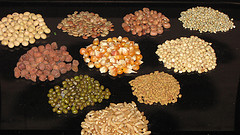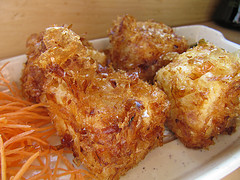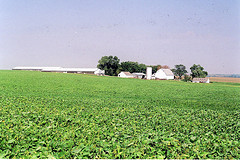
flic.kr/p/7drgKP
Liquid lecithin is a naturally occurring compound found in every cell of every living organism, whether of animal or plant in origin. In fact, while the liquid lecithin sold in the commercial industry is a mixture of neutral and polar lipids (glycolipids, sterols, triglyderides and small quantities of fatty acids, carbohydrates, and sphingolipids), lecithin in biochemistry is often used as a synonym for phosphatidylcholine (PC), which is itself a mixture of differently substituted sn-glycerol-3-phosphatidylcholine backbones. Read more . . .



